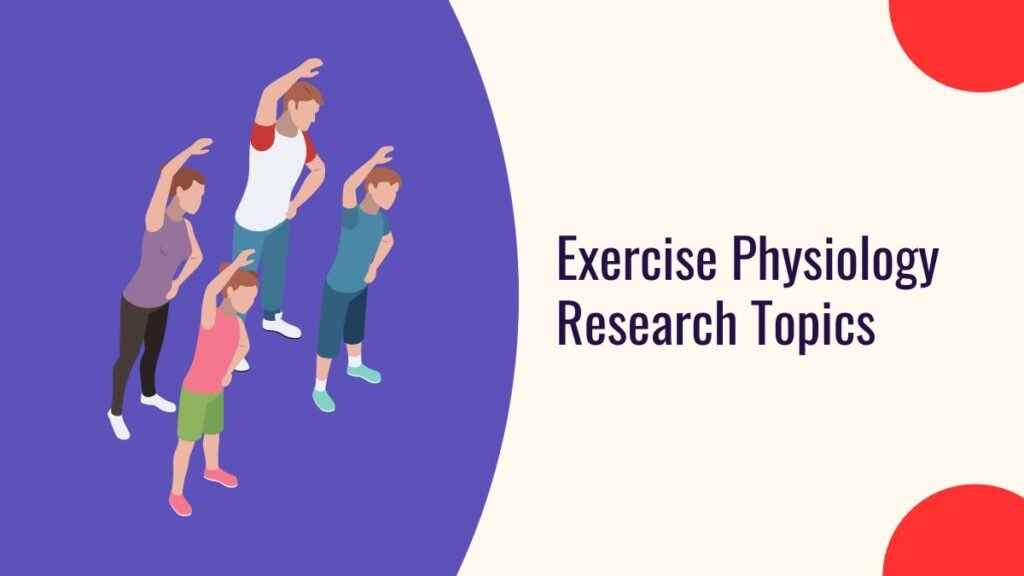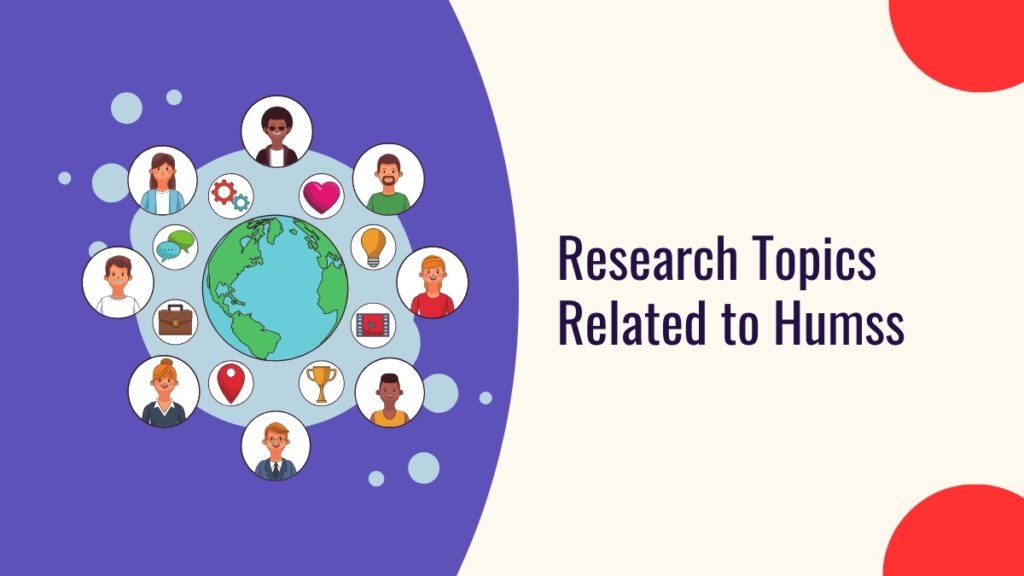Discover interesting exercise physiology research topics that explore how the body works during exercise, improves performance, and responds to physical activity. Find ideas to inspire your next research project in this exciting field!
Have you ever wondered how your body responds to exercise? Why do some people recover faster than others, or why do athletes seem to push their limits with ease?
Exercise physiology is the field that explores these questions, focusing on how physical activity affects our bodies at various levels from cellular responses to overall health.
According to the American College of Sports Medicine, regular exercise can reduce the risk of chronic diseases, improve mental health, and enhance quality of life.
This article will dive into ten compelling research topics in exercise physiology, providing a roadmap for students eager to explore this dynamic field.
Exercise Physiology Research Topics PDF
What Is Exercise Physiology?
Exercise physiology is a branch of biomedical science that studies the body’s responses and adaptations to physical activity. It encompasses various aspects, including how different systems (muscular, cardiovascular, respiratory) respond to exercise, the impact of exercise on health, and the implications of physical activity for various populations.
As the world increasingly recognizes the importance of fitness and health, exercise physiology becomes crucial in developing effective training programs, rehabilitation strategies, and wellness initiatives.
Top Exercise Physiology Research Topics for Students
Research in exercise physiology covers a wide range of topics that can help deepen our understanding of how the body works during physical activity. These topics not only enhance our knowledge but also contribute to practical applications in sports science, health, and fitness.
| Research Topic | Key Focus Areas | Potential Research Questions |
| 1. The Effects of Resistance Training on Muscle Growth | Hypertrophy, training protocols, recovery | How does training frequency affect muscle growth? |
| 2. Cardiovascular Responses to High-Intensity Interval Training (HIIT) | Heart rate dynamics, oxygen uptake, recovery patterns | What are the physiological responses to HIIT compared to steady-state cardio? |
| 3. The Role of Nutrition in Exercise Performance | Macronutrient needs, hydration strategies, nutrient timing | How does carbohydrate intake influence endurance performance? |
| 4. Biomechanics of Human Movement: Key Considerations | Muscle-joint interactions, injury prevention, performance | What movement patterns reduce the risk of injury during running? |
| 5. Impact of Exercise on Mental Health and Well-Being | Mood improvement, anxiety reduction, cognitive function | How does regular exercise affect anxiety levels in adolescents? |
| 6. Exercise Physiology and Aging: What Changes Occur? | Muscle mass, cardiovascular function, fitness decline | How does resistance training mitigate age-related muscle loss? |
| 7. The Influence of Genetics on Athletic Performance | Muscle fiber composition, VO2 max, recovery | How do genetic variations affect an individual’s athletic potential? |
| 8. Effects of Environmental Conditions on Exercise Performance | Temperature, humidity, altitude impacts | How does heat stress affect endurance performance? |
| 9. The Science of Recovery: Strategies for Optimal Performance | Recovery techniques, nutrition, sleep | What are the best practices for recovery post-exercise? |
| 10. Exercise Physiology in Special Populations: Training Considerations | Tailored programming for different demographics | What exercise guidelines are recommended for pregnant women? |
1. The Effects of Resistance Training on Muscle Growth
Resistance training is a cornerstone of fitness for building strength and muscle mass. This topic invites you to investigate the effects of various resistance exercises on muscle hypertrophy. Key focus areas include:
- Training Frequency: How often should one train a muscle group?
- Intensity and Volume: What are the optimal levels for maximum growth?
- Recovery: How does rest between sessions impact muscle development?
2. Cardiovascular Responses to High-Intensity Interval Training (HIIT)
High-Intensity Interval Training (HIIT) has surged in popularity for its efficiency and effectiveness in improving cardiovascular fitness. Key focus areas for this research topic include:
- Physiological Responses: Analyzing heart rate dynamics and oxygen uptake during HIIT.
- Recovery Patterns: Examining how quickly individuals recover after HIIT sessions compared to steady-state cardio.
- Comparative Effectiveness: Investigating how HIIT stacks up against traditional endurance training.
Studies show that HIIT can produce similar or superior cardiovascular benefits in less time. Understanding the physiological changes during HIIT sessions—such as lactate threshold and metabolic adaptations—can provide insights into its effectiveness for different populations, from athletes to sedentary individuals.
3. The Role of Nutrition in Exercise Performance
Nutrition is a key factor in enhancing exercise performance and recovery. This research topic encourages exploration of:
- Macronutrient Requirements: What are the specific dietary needs for athletes in different sports?
- Hydration Strategies: How does hydration impact performance and recovery?
- Timing of Nutrient Intake: What is the ideal timing for consuming carbohydrates and proteins around workouts?
Research indicates that carbohydrates play a crucial role in fueling exercise, while protein is vital for recovery and muscle repair. Understanding how diet influences energy levels, endurance, and muscle repair can inform training and competition strategies.
4. Biomechanics of Human Movement: Key Considerations
Biomechanics is the study of the mechanical laws relating to movement. This topic allows you to explore how:
- Muscles, Joints, and Bones Interact: How do they work together during various physical activities?
- Movement Patterns: What are the common mechanics in activities like running or jumping?
- Injury Prevention: How can understanding biomechanics help reduce injury risks?
By analyzing movement patterns, you can identify common injuries and explore ways to improve performance through better mechanics.
5. Impact of Exercise on Mental Health and Well-Being
Exercise is known to have profound effects on mental health. This topic invites exploration of:
- Psychological Mechanisms: How does exercise influence brain chemistry?
- Types of Exercise: Do certain activities (like yoga vs. running) have different effects on mental health?
- Long-term Benefits: How does regular physical activity contribute to sustained mental well-being?
Research shows that regular physical activity can boost serotonin levels, contributing to feelings of happiness and well-being. Investigating specific types of exercise can reveal how different activities influence mental health uniquely.
6. Exercise Physiology and Aging: What Changes Occur?
As we age, our bodies undergo significant physiological changes. Key focus areas for this research topic include:
- Muscle Mass: Understanding sarcopenia (muscle loss) and its implications for older adults.
- Cardiovascular Function: How does aging affect heart health and endurance?
- Tailored Exercise Programs: What types of exercises are most beneficial for older adults?
Understanding these changes can inform the development of tailored exercise programs that help maintain strength, mobility, and overall health in older adults.
7. The Influence of Genetics on Athletic Performance
Genetics plays a critical role in determining an individual’s athletic potential. Research areas to explore include:
- Muscle Fiber Composition: How do different types of muscle fibers affect performance in endurance vs. strength activities?
- VO2 Max: What genetic factors influence aerobic capacity?
- Recovery Times: How do genetics impact how quickly someone can recover from intense exercise?
Research has shown that some individuals may be predisposed to excel in endurance sports, while others may thrive in strength-based activities. Understanding these genetic factors can help in designing personalized training regimens.
8. Effects of Environmental Conditions on Exercise Performance
Environmental factors can significantly influence exercise performance. Key areas to investigate include:
- Temperature: How does exercising in heat vs. cold affect performance?
- Humidity: What role does humidity play in hydration and fatigue?
- Altitude: How does training at high altitudes affect aerobic capacity and performance?
Understanding how to adapt training and hydration strategies in different environments is crucial for athletes preparing for competitions in varying conditions.
9. The Science of Recovery: Strategies for Optimal Performance
Recovery is essential for enhancing training outcomes and preventing injuries. This research topic invites exploration of:
- Recovery Techniques: What methods (e.g., foam rolling, active recovery) are most effective?
- Nutrition for Recovery: How does post-exercise nutrition influence recovery times and muscle repair?
- Role of Sleep: What is the relationship between sleep quality and recovery?
Research indicates that incorporating recovery days and proper nutrition can significantly enhance training adaptations and performance outcomes.
10. Exercise Physiology in Special Populations: Training Considerations
Different populations, including children, pregnant women, and individuals with chronic conditions, require tailored exercise programming. Key focus areas include:
- Exercise Guidelines for Children: What are the developmental considerations for young athletes?
- Pregnancy: How can exercise be safely incorporated into prenatal care?
- Chronic Conditions: What adaptations are needed for individuals with diabetes or heart disease?
Understanding these unique physiological considerations can help develop safe and effective exercise programs for diverse groups.
Understanding Research Methodologies in Exercise Physiology: A Comprehensive Guide
When embarking on research in exercise physiology, understanding various methodologies is crucial. Different approaches can provide valuable insights:
- Quantitative Research: Focuses on measurable data (e.g., physiological responses, performance metrics).
- Qualitative Research: Involves gathering personal experiences through interviews or surveys.
- Mixed-Methods: Combines both quantitative and qualitative approaches for a comprehensive analysis.
Familiarizing yourself with these methodologies can enhance the quality of your work and contribute to the field’s understanding.
Emerging Trends in Exercise Physiology Research
The field of exercise physiology is continuously evolving, with new trends shaping research and practice. Key areas of interest include:
- Wearable Technology: How does technology influence training and performance monitoring?
- Personalized Training: What role does genetic profiling play in designing tailored exercise programs?
- Gut Health: How does the microbiome impact exercise performance and recovery?
Staying updated on these trends can help you identify relevant topics for research and ensure your work aligns with current advancements.
Challenges in Exercise Physiology Research: What You Need to Know
While research in exercise physiology is exciting, it also comes with challenges. Key issues include:
- Participant Recruitment: How can you effectively recruit participants for studies?
- Adherence to Protocols: What strategies can ensure participants follow exercise protocols accurately?
- External Variables: How can you control factors that may influence results?
Understanding these challenges can help you design more robust research and interpret findings accurately.
Real-World Applications of Exercise Physiology Research
Research in exercise physiology has significant real-world applications. Findings can inform:
- Training Protocols: Enhancing performance for athletes through evidence-based training.
- Rehabilitation Programs: Designing effective recovery programs for individuals recovering from injuries.
- Public Health Initiatives: Promoting physical activity as a means to improve community health outcomes.
By applying research insights, professionals can enhance performance, prevent injuries, and improve overall health in various populations.
How to Choose the Right Research Topic in Exercise Physiology?
Selecting the right research topic is essential for a rewarding academic experience. Consider the following steps:
- Identify Your Interests: Reflect on what excites you within exercise physiology.
- Review Current Literature: Explore existing research to identify gaps or emerging areas.
- Discuss with Peers and Instructors: Seek feedback and suggestions for refining your focus.
By taking these steps, you can choose a topic that resonates with you and contributes meaningfully to the field.
Ethical Considerations in Exercise Physiology Research
Ethics play a vital role in exercise physiology research. Key considerations include:
- Informed Consent: Ensuring participants understand the study’s purpose, risks, and benefits.
- Participant Safety: Taking measures to protect the well-being of all participants.
- Transparency: Being clear about funding sources and potential conflicts of interest.
Upholding ethical standards contributes to the credibility and integrity of research findings.
What are Some Good Topics to Write on for an Exercise Physiology Master’s Thesis?
When considering a master’s thesis in exercise physiology, it’s essential to choose a topic that aligns with your interests and career goals. Here are some suggestions:
- Investigate the impact of specific training regimens on performance in different sports.
- Explore the physiological adaptations of endurance training in various age groups.
- Analyze the effects of nutritional interventions on recovery post-exercise.
- Study the relationship between exercise adherence and mental health outcomes in clinical populations.
- Examine how technological advancements are shaping exercise prescription and performance monitoring.
Wrap Up: The Future of Exercise Physiology Research
Exercise physiology is a dynamic field with vast potential for research and discovery. By exploring topics such as resistance training, nutrition, mental health, and special populations, students can contribute to a better understanding of how exercise impacts human health and performance.
As you embark on your research journey, remember the importance of choosing a topic that resonates with you and aligns with current trends in the field. Embrace the opportunity to explore, discover, and share your findings, and contribute to the growing body of knowledge in exercise physiology. The future of exercise physiology research is bright, and your contributions can help shape it for years to come.



